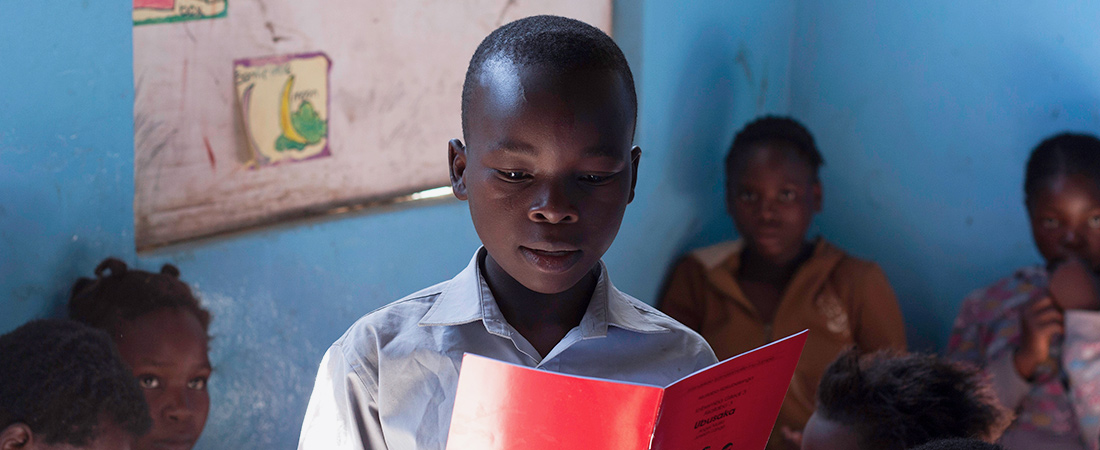
Literacy and mathematical programs deliver the promise of education to millions of children around the world.
We create and test learning experiences that lead to deep understanding and an ability to act thoughtfully upon the world. Whether in settings that are rich or poor in resources, we are committed to building sound foundations in literacy, science, and mathematics.
Through engaging classroom curricula, media instruction, digital tools, and teacher training, we equip children and young adults with the fundamentals they need to be successful—in school and in life.
Related Content
A Second Chance at School in Mali
In Mali, accelerated education is helping thousands of children get back to school.
Is Social Media Harmful to Students with Disabilities?
A new report on social media finds some benefits, but higher cyberbullying rates.
3 Ways to Stop the Summer Slide
Want to help kids keep learning this summer? Here are some tips for parents and caregivers.
How Schools Can Support Students Affected by Opioids
The trauma children experience as a result of opioid misuse at home can affect how they do in school—but schools can help.
3 Ways Schools Can Support Children Affected by the Opioid Crisis
Schools are uniquely positioned to address the needs of children exposed to trauma, says Shai Fuxman.
Accelerating Education in Liberia
An estimated 300,000 Liberian children do not attend school. What’s being done to provide more access to education?
Projects
Resources
Here are a few of our resources on behavioral, physical, and mental health. To see more, visit our Resources section.
This study describes high school graduation outcomes for students who entered New York City schools in grade 5 or 6 as English learner students, including estimating on-time, five-year, and six-yea
This case study is one of the Sustainable Finance Initiative’s seven rapid country case studies studying the state of school meals programs.
This study reviews student assessment data collected from 15 EDC projects to determine the impact of interactive radio instruction (IRI) on student achievement in hard-to-reach areas.
This document outlines the vision, mission, and three-year plan of the Massachusetts Computing Attainment Network (MassCAN), which is based at EDC.
Drawing on its extensive work in fragile environments, EDC developed this set of case studies that chronicles best practices, lessons learned, and stories of success.
EDC’s basic education programs in low-resource contexts support the development of learners who can use language to explain and analyze the world around them and who have the foundational skills to think critically and solve the range of problems they will encounter in school and life.
The Investigating U.S. Society with Data (USS-DATA) curriculum modules are designed to promote high school students’ statistical thinking and data literacy skills through investigations of social and economic conditions in the U.S.
This toolkit provides program designers with information on how to develop and implement effective early childhood interactive audio instruction (IAI) programs in a range of settings.
The Package for Improving Education Quality (PIEQ) project aims to improve French and math learning in the Democratic Republic of the Congo. Through collaboration with DRC's National Ministry of Education (MNE), PIEQ builds the capacity of teachers, schools, and communities in three Congolese provinces to increase student learning by improving teaching and the school environment.
This toolkit helps build the capacity of teachers and leaders to use evidence-based practices, universal design for learning (UDL) principles, and technology to improve student engagement, motivati
